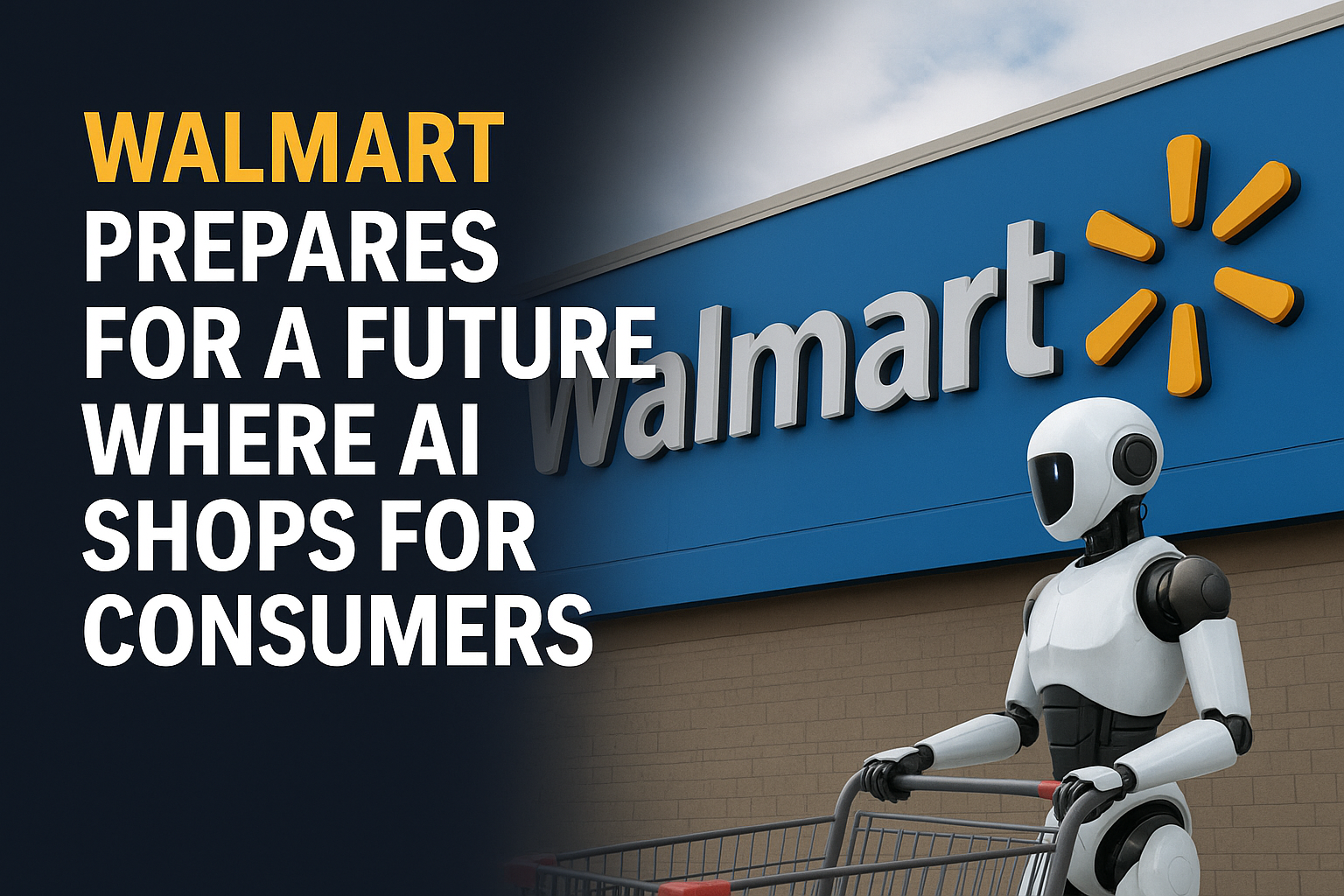Walmart is gearing up for a shift in consumer behavior as artificial intelligence begins to take a more active role in how people shop.
The retail giant is exploring how to make its products not only attractive to human buyers but also to autonomous AI agents that may soon handle shopping tasks on behalf of consumers, The Wall Street Journal (WSJ) reported Thursday (May 15).
These AI-powered bots, capable of acting independently, could disrupt the traditional online retail experience by bypassing the typical search-and-advertising methods used to influence shoppers, the report said.
Instead of scrolling through ads or comparing product reviews, future consumers may rely on digital assistants, like OpenAI’s Operator, to manage their shopping lists, from replenishing household essentials to selecting the best TV based on personal preferences, according to the report.
“It will be different,” Walmart U.S. Chief Technology Officer Hari Vasudev said, per the report. “Advertising will have to evolve.”
The emergence of AI-generated summaries in search results has already altered the way consumers gather product information, the report said. However, autonomous shopping agents represent a bigger transformation. These bots could not only find products but also finalize purchases, including payments, without the user ever lifting a finger.
“Walmart’s announcement is a strong signal that they see AI shopping agents as an inevitable and imminent part of the retail landscape,” Jerry Sheldon, retail analyst at IHL, told PYMNTS in an interview. “This move validates the momentum behind agent-based commerce and sets expectations for the broader industry.”
Earlier this month, Visa, Mastercard and PayPal all announced their own moves into agentic commerce, where AI agents will not only shop for human users but also pay for their purchases.
Visa is working with Anthropic, Microsoft, Mistral, OpenAI, Perplexity and others to integrate payment capabilities into AI chatbots. Mastercard is working with Microsoft, IBM and companies like Braintree and Checkout.com to enhance tokenization capabilities already in use.
Meanwhile, Perplexity said it is adding PayPal to its AI chatbot.
Will consumers use AI agents? According to the PYMNTS Intelligence report “How People Pay: Consumer Preference For Connected Technology,” consumers are growing more comfortable with technology, and this attitude is reshaping how they pay.
Retail experts say agentic commerce will require companies to overhaul how they market and present their products online, the WSJ report said. They may need to redesign product pages and pricing strategies to cater to algorithmic buyers. The customer relationship could shift away from retailers if purchases are completed through third-party agents.
“The rise of AI agents will fundamentally change how retailers approach marketing and loyalty,” Sheldon said. “Traditional methods may become less effective as agents make more purchasing decisions.”
“Retailers will need to rethink their strategies to remain competitive in an agent-driven world,” Sheldon added. “First mover also means first experience, giving them a natural advantage and expertise when and if they need to pivot.”
To prepare, Walmart is developing its own AI shopping agents, accessible through its website and app, according to the WSJ report. These bots can already handle basic tasks like reordering groceries, and they’re being trained to respond to broader prompts, such as planning a themed birthday party.
Walmart is working toward a future in which outside agents can seamlessly communicate with the retailer’s own systems — something Vasudev told the WSJ he expects to be governed by industry-wide protocols that are still under development.
“It’s clear that Walmart’s internal solutions, across data structures, platforms and systems, are now mature enough to support not just their own AI agents, but also a diverse range of agent-based solutions or are at least rapidly trending in that direction as a destination,” Sheldon said.
Industry standards will likely play a role, he said. Walmart’s technical flexibility and advanced investment in IT systems position the company to accommodate proprietary and third-party innovations.
Third-party shopping bots may also act independently, crawling retailers’ websites much like consumers browse stores without engaging sales associates, the WSJ report said. In those cases, the retailer has little control over how its products are evaluated.
Whether consumers instruct their AI to shop specifically at Walmart or ask for the best deal available, the outcomes will increasingly be shaped by algorithms, per the report. Operator, for example, considers search ranking, sponsored content and user preferences when making recommendations.
That’s a far cry from how humans shop. Bots don’t respond to eye-catching visuals or emotionally driven branding in the same way people do. This means retailers must optimize their content not just for people but for machine readers as well, the report said.
Pricing strategies could also shift as companies may need to make rapid pricing decisions and determine whether it’s worth offering AI agents exclusive discounts to keep them from choosing a competitor’s lower-priced item, according to the report.
Meanwhile, Walmart is in the game early. It’s “not just participating in the AI transformation, [it’s] leading it,” Sheldon said. “By staking an early and public claim in the agent-driven future, [Walmart reinforces its] reputation as a market leader in AI adoption and innovation.”
Source: https://www.pymnts.com/


